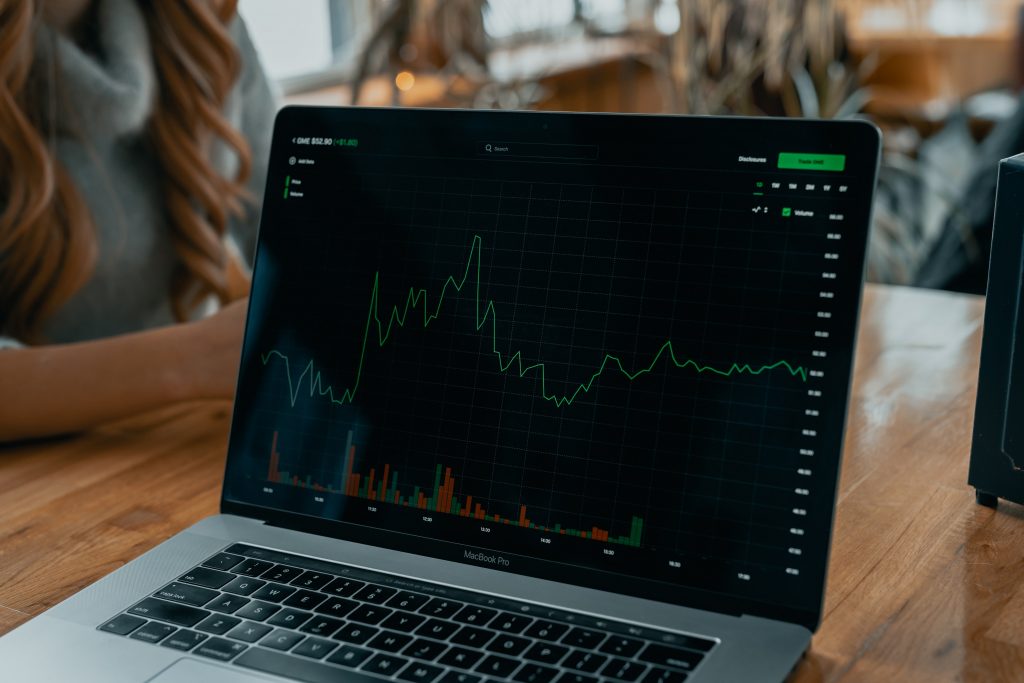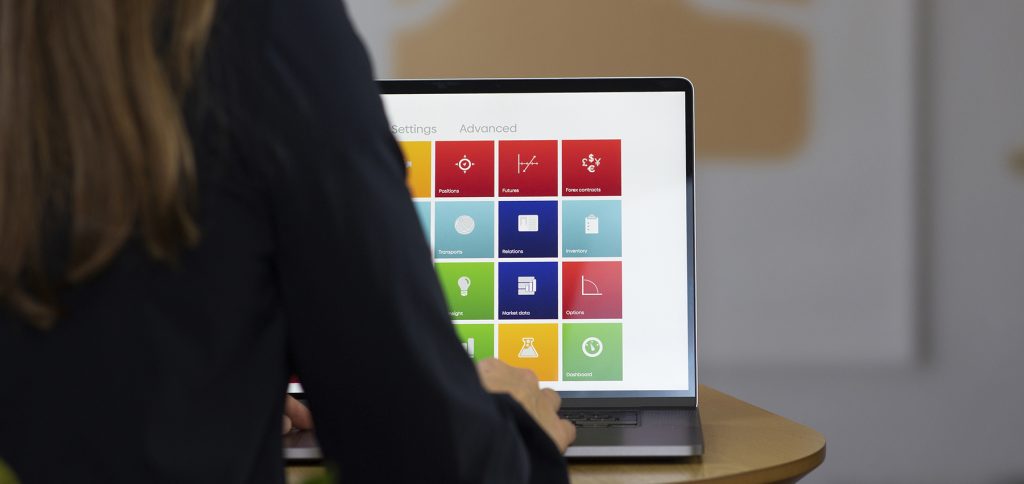Derivatives or financial derivatives are popular financial contracts that are used in risk management in any number of markets, as the underlying financial asset can be anything from bonds and stocks to currencies and commodities. Indeed, the use of derivatives is a very well-established risk management strategy in the commodity trade, where the main purpose is to reduce risk arising from (future) price uncertainty.
As such, we’re often asked what the difference is between derivatives and options, or derivatives and futures. Although the difference is quite simple, it’s also quite easy to understand how the two can be mixed up. We’ll talk about commodity derivatives in this article, as well as sum up the most common derivatives and how you can manage your portfolio of derivatives using the risk management tools that Agiblocks provides.
Derivatives versus options
Derivatives are arrangements or products whose value derives from (and is dependent on) the value of an underlying asset, such as commodity, currency or security. The arrangement can be set between two or more parties and be used to trade any number of assets. As such, they play a crucial part in your risk management activities. These financial securities are commonly used to access certain markets and may be traded to hedge against risk.
When we are talking about hedging in the context of (commodity) trade, we are talking about the use of derivates as a financial instrument. Examples of derivatives include options, futures, forwards and swaps. In other words, the main question at the top of this page is addressed quite quickly here: an option is an example of a derivate. (Which is to say, an option is a derivative, but a derivative is not necessarily an option).
Managing derivatives within your portfolio can prove a difficult task without the correct tools. Agiblocks offers a simple but effective solution for managing all types of derivatives within your portfolio and employing these tools in your risk management activities. Let’s talk about the most common derivatives: options, futures, forwards and swaps.

Options
Options are a form of derivatives, which gives holders the right, but not the obligation to buy or sell an underlying asset at a pre-determined price, somewhere in the future.
When you take an option to buy an asset it is called a ‘call’ and when you obtain the right to sell an asset it is called a ‘put’. To determine whether it is profitable to exercise an option, the current market price (spot price) and the price in the option (strike price) need to be compared. By comparing both prices, a choice can be made to either exercise the option or let it expire, depending on the difference in outcome. | Find out more about option pricing.
When exercising an option there are three positions the holder can take. The first is ‘in the money’ (ITM), where the strike price is more favorable than the spot price and thus it will be advantageous to exercise the option. The second is ‘at the money’ (ATM) in which the strike and spot price are equal and so no advantage can be gained. The third is ‘out the money’ (OTM), where the strike price is higher than the spot price. In this case it is better to let the option expire and buy the commodity at the current market price.
There are two ways of settling an option between two parties. The first way is to physically deliver the underlying commodity. The other way is to cash-settle the option. In this way the difference between the spot and strike price is paid to the holder of the option upon exercising the option.
Advantages of options
An option has a few advantages over the other derivatives we’ll soon cover, the most important one deriving from its very name: option. An option is not binding, in the way that it does not obligate one to buy a commodity. It gives you the right to buy it and so when the price of the option is higher than the current market price you can just let the option expire and buy at the spot price. The only loss made therefore will be the premium which is the cost of maintaining the option.
Another advantage is the usefulness of options as a hedging tool. Options offer the tools to successfully hedge price movements with a small investment risk.
Options in Agiblocks
The market for physical agricultural commodities is an over-the-counter (OTC) market, where two parties agree on a contract to deliver and buy a commodity. These contracts are in many cases unique because they are set up in such a manner that they meet the specific needs of both parties. A contract is however not written from scratch for every single transaction. Usually a standard contract from a leading company is used as a basis for an individual contract.
In other words, a contract is relatively standard, with the exception of certain aspects. A number of aspects are determined for each contract – one of which is the price. The price of the commodity is obvious an essential part of a contract. The other sections of the contract all generate input for determining the price. A price can be settled in many different ways, ranging from a fixed price to a market related price. Of course, Agiblocks can help you with all those steps, as physical contract management is where it excels. | Find out more

Futures
Options give holders the right – but not the obligation – to buy or sell an underlying asset at a pre-determined price, somewhere in the future. With futures contracts, the holder does have an obligation to act. That is not only the main distinction between options and futures, but also the reason why investors tend to confuse the two.
Futures are defined as goods or shares that are bought at agreed prices but that will be delivered and paid for at a later time. More specifically, they are financial contracts obligating either the buyer to purchase an asset or the seller to sell an asset at a predetermined date and price in the future. Futures contracts (futures and futures contracts are one and the same, and are used interchangeably) are standardized for quality and quantity to facilitate trading on a futures exchange. | Find out more about futures pricing
Advantages of futures
Futures are exchange-organized contracts which determine the size, delivery time and price of a commodity. Futures can easily be traded because they are standardized by an exchange. As such, futures have several advantages over options.
In general, futures are usually easier to understand as well as value (eg. setting the right price). They have greater margin use, and are often more liquid. At the same time, these legal contracts are more complex than their underlying assets, so it’s very important to understand all risk involved. Unlike options, futures contracts are obligations – which we can’t stress enough. Moreover, the degree of leverage can amplify gains – as well as losses.
Futures in Agiblocks
Commodity futures contracts are agreements to buy or sell a given amount of a commodity at a predetermined date and price in the future. Commodity futures can be used to hedge an investment position. They let you predict the direction of a commodity or security, short or long, using leverage – allowing you to control the price movement of the underlying asset, thereby allowing you to avoid losses in the event of unfavorable price changes.
There are tons of tools to deal with risk aversion. And all of them – including hedging with futures – can be wielded from the comfort of your Agiblocks dashboard. Because it is not just the next generation of CTRM systems, but a solution that truly meets all technical as well as business needs for anyone working in soft or agricultural commodities.
Forwards
Forwards and futures are very similar, as they are contracts which give access to a commodity at a determined price and time somewhere in the future. The main thing that sets forwards apart from futures is the fact that it is traded between two parties directly without using an exchange. The absence of the exchange results in negotiable terms on delivery, size and price of the contract. Which can all be worked out in Agiblocks, of course.
Another contrasting aspect of forwards as opposed to futures is the fact that forwards are usually executed on maturity, which is to say they settle at the end of the contract, because they are mostly used as insurance against adverse price movement and actual delivery of the commodity takes place. Whereas futures are widely employed by speculators, who simply hope to gain a profit by selling the contracts at a higher price and futures are therefore closed prior to maturity.
The main advantage of forwards is the fact that the contract can be made very specific to a commodity, an amount and a delivery date. They can assist producers, users and traders of agricultural commodities in hedging against a change in the price. In our Agiblocks CTRM solution, we have provided mechanisms for a forward contract administration as well as valuation of traded assets with a constantly changing price. For instance, the physical position and mark to market views, based on real-time transaction and market data, are provided through interactive screens. These smart screens can be customized on both the company and the user level, allowing to adapt the information to individual requirements.
Additionally, these screens offer users the opportunity to drill down from the aggregated Physical Position and Mark to Market into the underlying contract data.
Furthermore, while a lot of companies talk about the cloud, usually that just implies their systems are in the cloud and not on on-location servers. With Agiblocks, you can actually work from the cloud. You get to quickly keep up with developments and, more importantly, you can work from anywhere; at the office or on the road, at home, on any device that has a browser. It allows you to check and adjust your position anytime, anywhere.
Swaps
A swap is a rather straightforward agreement between two parties to exchange cash flows on a determined date or in many cases multiple dates. Typically, one party agrees to pay a fixed rate while the other party pays a floating rate.
For example, when trading commodities the first party, say an airline company relying on kerosene, agrees to pay a fixed price for a pre-determined quantity of this commodity. The other party, a bank or other financial institution agrees to pay the spot price for the commodity. The agreement allows the airline company to be insured of the price it will pay for its commodity. A rise in the price of the commodity is in this case paid by the bank. Should the price fall, the difference will be paid to the bank.
Swaptions
We would be remiss if you wouldn’t address one final example of a derivative, which is a hybrid version of both an option and a swap: a swaption. It gives a holder the right to enter a swap with another party at a given time in the future. Parties usually agree on a swaption when there are uncertainties about the price movements in the future. Just like with options, the swaption will only be executed if the price is more favorable than the spot price. If the sport price upon the maturity date is more favorable, the swaption will expire. In this situation a company will agree on a new swap, based on the current market prices.
Agiboo and Risk Management: the next level
Did you know we’ve recently partnered up with Tradesparent, the renowned specialist in Risk & Margin Management? We can offer a proposition that allows the end user to have all the advantages of our CTRM expertise as well as Tradesparent Risk Management prowess.
Through an integrated data solution, we aspire to unlock the full potential of your data by bringing simplicity, consistency and transparency to daily financial and physical operations. Let’s talk about the next level of commodity management!

